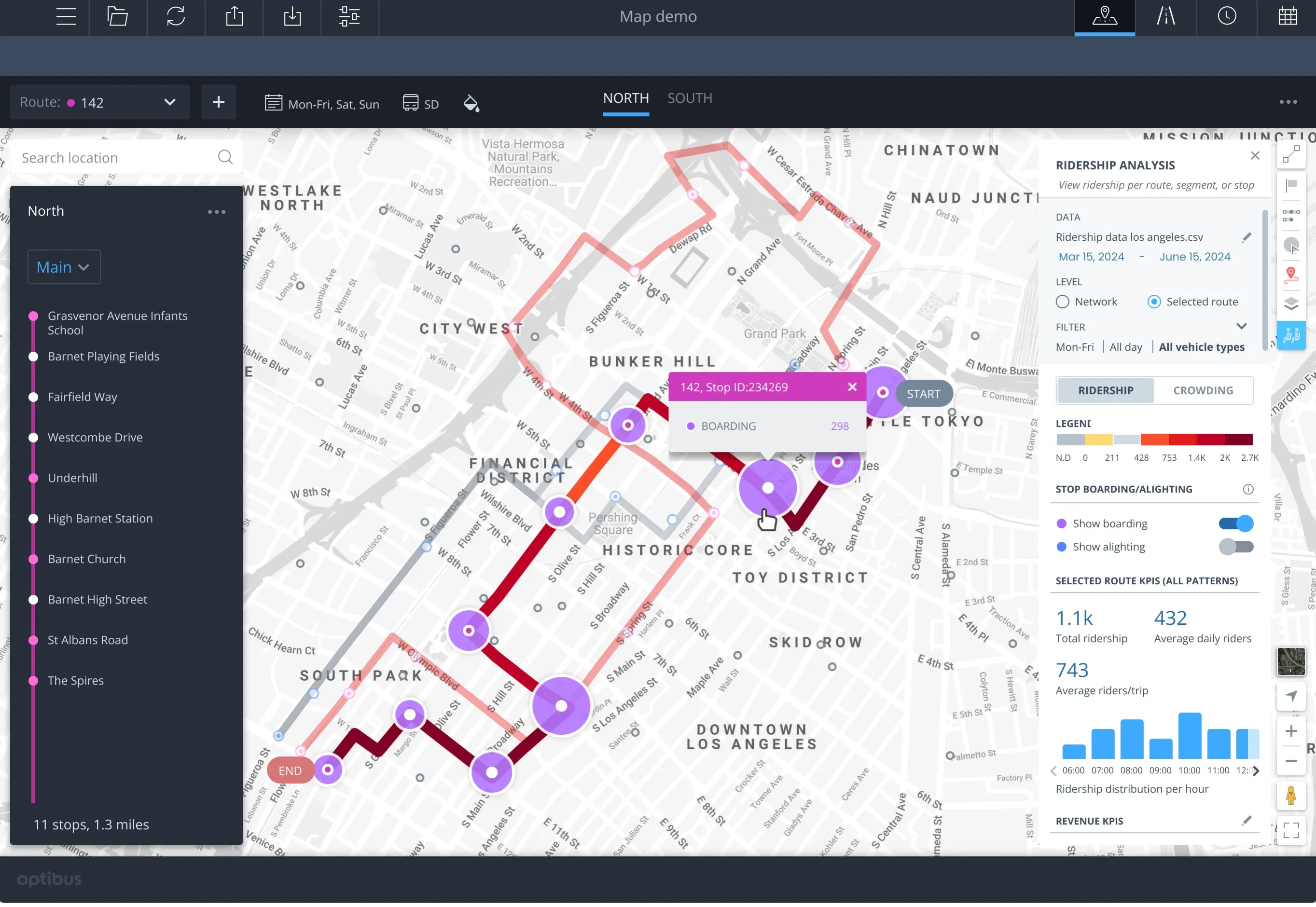
Optibus, a software platform for planning, operating and optimising public transportation networks, is making its General Transit Feed Specification (GTFS) Manager available in Europe.
At the moment, GTFS is used by more than 350 transportation operators and state and federal agencies in North America. It helps to digitally transform passenger information systems, leading to more reliable services and better passenger satisfaction. Current users of Optibus’ GTFS offerings include the Oregon Department of Transportation, Vermont Agency of Transportation (VTrans) and Caltrain - a California commuter rail line serving the San Francisco Peninsula and Santa Clara Valley.
Optibus’ expansion into Europe starts with a focus on Spain with Geoactio, whose own offerings integrate with third-party solutions used by mass transit authorities.
Geoactio is making Optibus’ GTFS Manager accessible to Spanish public transportation agencies and cities that have been struggling to transfer service data to the cloud and make service information more accessible to passengers. Many of these agencies have received funds for digitalisation under the European Commission’s Next Generation Funds programme, established to address the economic and social impacts of the coronavirus pandemic.
More than a billion people use transportation planning apps like Google Maps and Apple Maps every month. These apps make it easier for passengers to discover, access and use public transportation. But they work properly only if fed the latest, highest-quality data about services and timetables.
Optibus says that its GTFS easily exchanges service data between transportation agencies, operators, departments of transportation, vendor systems and trip planning apps around the world. It was the first supported cloud-based software developed for maintaining transportation data in Google Maps and other trip planning applications.
The product’s interface allows transportation agency staff to easily manage, update and visualise their data. GTFS Manager maintains all required and many optional elements of GTFS data, including routes, trips, stop times, transfer preferences, service calendars, holidays and fare schedules.
“Providing accurate, reliable service information is something that passengers have come to expect from all public transportation providers,” said George Belias, partnerships manager at Optibus.
“We look forward to providing our clients with even more value as we make Optibus’ GTFS Manager available to the Spanish market for the first time,” said Juancho Cabrera, chief executive of Geoactio.










